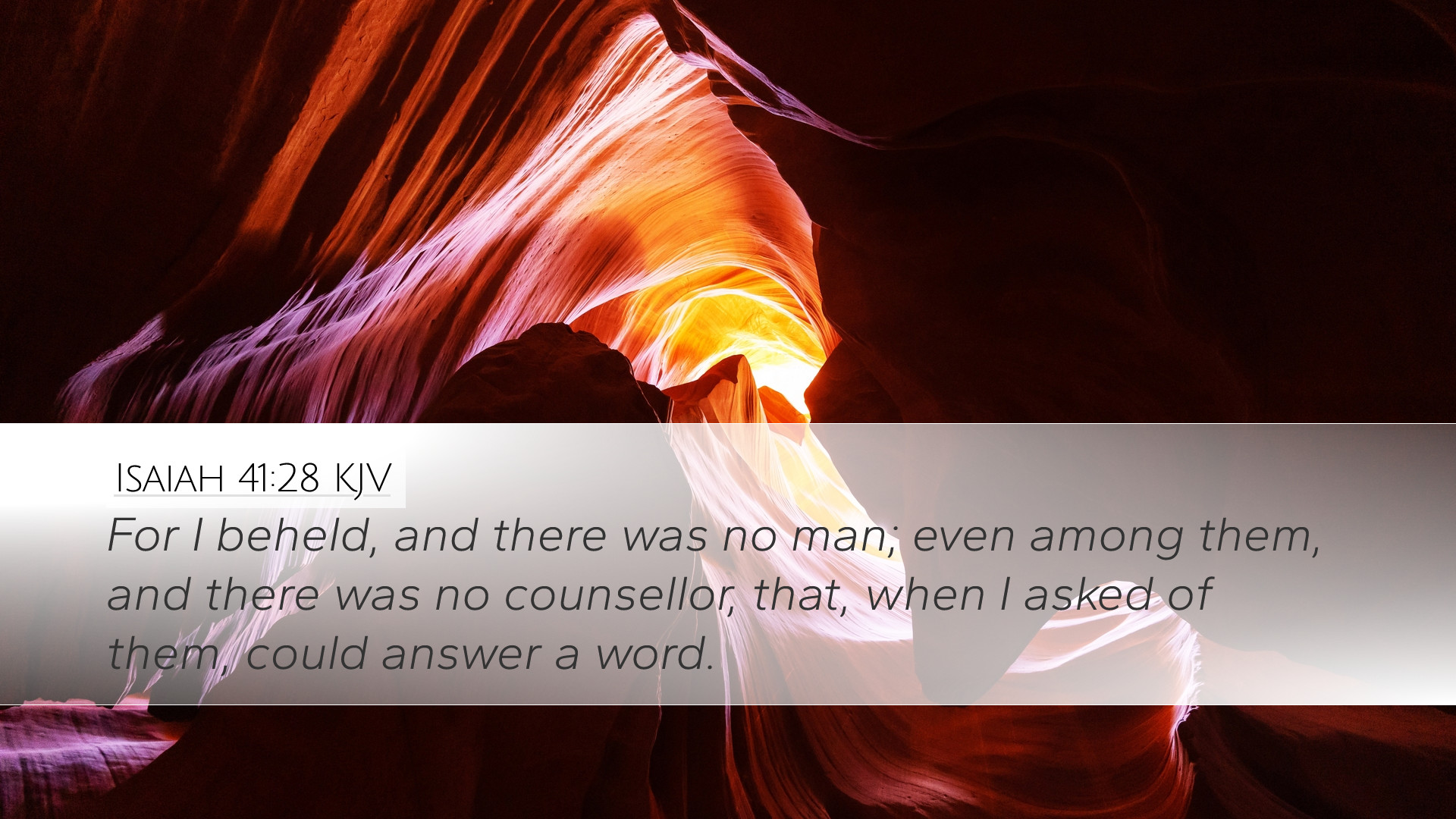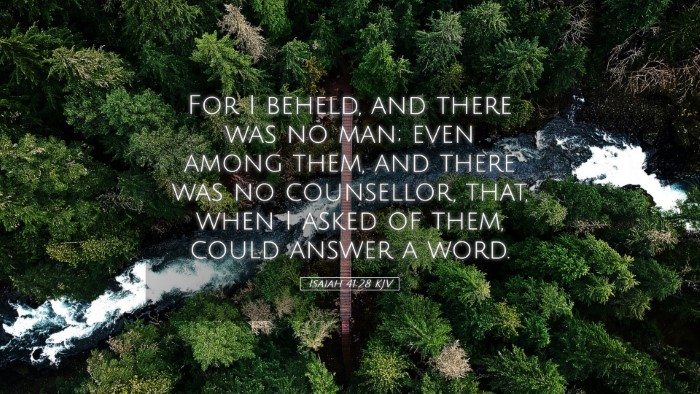Commentary on Isaiah 41:28
Verse: "For I looked, and there was no man; and of these, there was no counselor, that, when I asked of them, could answer a word." (Isaiah 41:28, KJV)
Introduction
This verse presents a profound reflection on the state of humanity and their inability to provide wisdom and counsel when called upon by God. The sentiment expressed by the prophet Isaiah articulates a searching for understanding and guidance among the people, which is found to be absent, highlighting a theme of divine sovereignty over human limitation.
Exegetical Insights
Isaiah 41:28 is situated within a broader context where God reassures Israel of His presence and deliverance, contrasting the impotence of idols with the power of the Divine. In this verse, the absence of wise counsel among men serves as a critique of human wisdom devoid of divine revelation.
1. The Context of Divine Inquiry
God's inquiry into the counsel of men suggests a divine evaluation of human wisdom. The prophet emphasizes that his search among men yielded no one capable of providing insight. Matthew Henry notes that this illustrates the emptiness of human understanding compared to divine wisdom.
2. The Role of Counsel in the Life of Faith
Counsel is pivotal in navigating the complexities of life; however, Isaiah points out that the counsel of men is insufficient. Adam Clarke elaborates on the idea that true wisdom comes from God alone; thus, the lack of human counsel emphasizes the need for divine guidance.
3. Theological Implications
This verse raises critical theological discussions about the nature of God as the ultimate source of wisdom. It calls into question the reliance on human processes and the importance of seeking divine direction.
Theological Commentary
This verse can be seen as a reminder of human frailty and the necessity of divine wisdom. Albert Barnes discusses the futility of idol worship, suggesting that in contrast to the living God, idols offer no true wisdom or counsel, reinforcing the idea that it is folly to depend on them.
Human Limitations
Isaiah's proclamation reveals the limitations inherent in human knowledge. No matter how esteemed or learned an individual may be, they fall short without God’s enlightenment. The lack of “counsel” signals a desperate need for divine intervention.
Divine Omniscience
The absence of human counsel invites the recognition of God’s omniscience. God knows all, and His wisdom surpasses human understanding. This motivates believers to turn to Scripture and prayer as primary sources for wisdom and guidance.
Pastoral Applications
For pastors and church leaders, Isaiah 41:28 serves as a reminder of two essential truths: the necessity of divine wisdom in church leadership and the importance of encouraging congregants to seek God above all else.
1. Encouraging Dependence on God
In leading and advising others, pastors should cultivate an environment where dependence on God is modeled and taught.
2. Emphasizing Prayer and Scripture
The absence of human answers should lead congregants to a deeper commitment to prayer and Scripture study, reinforcing the idea that God's word provides wisdom that surpasses human understanding.
Conclusion
Isaiah 41:28 encapsulates vital truths about the limitations of human wisdom and the necessity of seeking divine counsel. In a world that often prioritizes human insight, believers are called to recognize the sovereignty of God and rely upon His wisdom as the ultimate source of guidance. As such, this verse invites reflection for theologians, students, and pastors alike on the ways they can encourage reliance on God's word rather than solely on human counsel.


